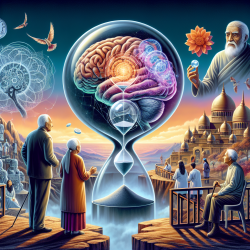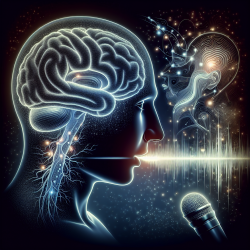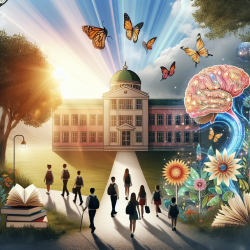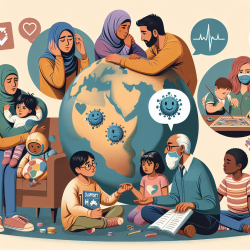Unlocking Memory Mysteries: Insights from Aging and the Brain
As a speech-language pathologist, understanding the intricacies of memory and aging is crucial for enhancing therapeutic outcomes. A recent study titled "Memory, Aging and the Brain: Old Findings and Current Issues" by Fergus I.M. Craik provides valuable insights into age-related memory differences and their neural underpinnings. This blog aims to distill these findings and explore how they can inform your practice and encourage further research.
Key Findings from the Study
The study delves into several key areas of memory, including:
- Erroneous Recollection: The study highlights cases of hyperfamiliarity and déjà vécu in older adults, often linked to Alzheimer's disease. These phenomena are attributed to impairments in the medial-temporal and frontal lobes, affecting the brain's ability to bind new experiences with past memories.
- Implicit vs. Explicit Memory: Research by Gopie et al. found that older adults perform better on implicit memory tasks, where previously irrelevant information becomes useful, compared to explicit memory tasks. This suggests that older adults may retain more irrelevant information, which can be leveraged in therapy.
- Specificity and Generality in Memory: Older adults tend to encode events with less specificity, leading to more general memories. This is attributed to reduced processing resources and challenges in encoding and retrieving detailed information.
Implications for Practice
Understanding these findings can significantly enhance your therapeutic approach:
- Tailored Interventions: Recognize that older adults may benefit from interventions that focus on implicit memory tasks. These tasks can help leverage their ability to use previously irrelevant information.
- Enhancing Specificity: Encourage activities that promote detailed encoding and retrieval processes. This could involve exercises that focus on context and detail to strengthen memory specificity.
- Monitoring and Assessment: Be vigilant for signs of hyperfamiliarity or erroneous recollection in older clients, as these may indicate underlying neurological issues.
Encouraging Further Research
While the study provides a comprehensive overview of memory and aging, it also highlights areas for further exploration:
- Neural Correlates: More research is needed to understand the specific neural mechanisms underlying age-related memory changes, particularly the roles of the hippocampus and frontal lobes.
- Therapeutic Techniques: Investigate the effectiveness of various therapeutic techniques in enhancing memory specificity and reducing erroneous recollections in older adults.
By integrating these findings into your practice, you can enhance your therapeutic interventions and contribute to a deeper understanding of memory and aging. For those interested in delving deeper into this topic, I highly recommend reading the original research paper. Memory, aging and the brain: Old findings and current issues.










